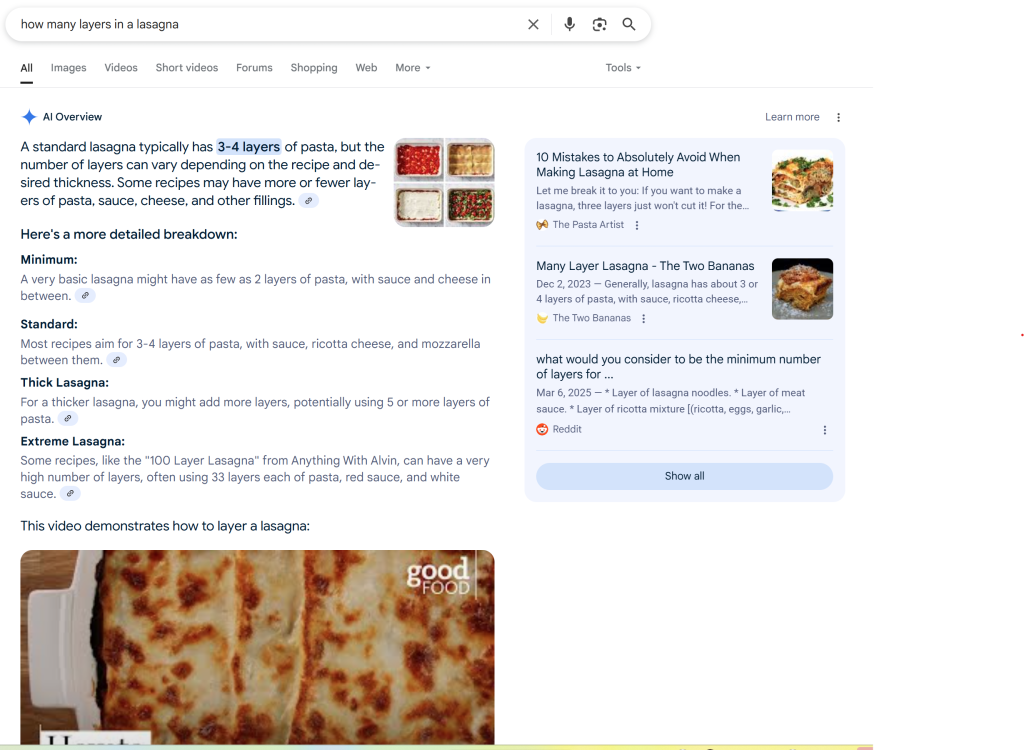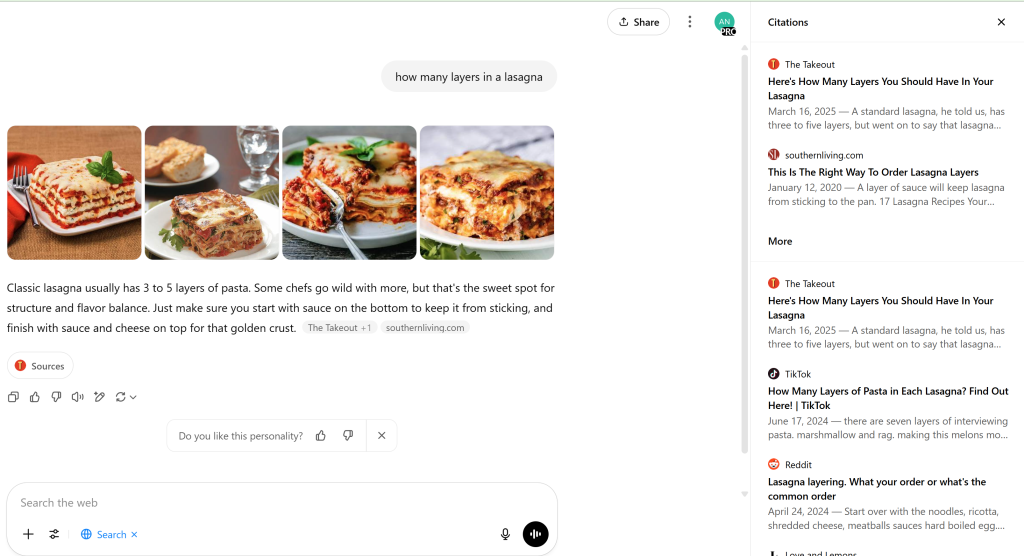Some posts only go to subscribers via email. EXCLUSIVELY.
You can read more here or simply subscribe:
Is AI Search Traffic The New SEO?
I get it. Longtail SEO was kinda fun. All you had to do was figure out which search queries were underserved and then come up with a decent page that answered that query.
I know I enjoyed it.
Back in 2018-2020, I stumbled upon many such queries, which is why my sites did so well on Google.
Most of the time, I wasn’t one to rely on advanced techniques using Ahrefs.
In fact, my most successful posts came about from random ideas that I would manually check and find there was no competition. I was often surprised by the sheer search volume of questions such as “how many layers in a lasagna” or “what’s the meaning of porch light color?”
Then, long before the HCU or even ChatGPT, things became less fun. Competition grew, and a slew of SEO keyword research tools leveled the field. There was no longer a need for “intuition” or even manually using Google auto-complete.
Just feed a term into one of the many tools, and the script would run through thousands of combinations, check the competition, and offer recommendations.
Of course, the problem was that everyone could access these tools, and soon enough, there were 20 pages competing for each longtail term. I won’t go into it now, but if anyone wants to dig into that ancient history, I wrote about that back in July 2022.
The point I’m trying to make here is that I get the appeal of SEO. I really do. Right now, longtail SEO is not really an option for informational sites, aka niche sites. Google – the dominant search engine that most people use – has radically changed.
It’s not just the HCU (though that’s a significant part of it). Even if you “rank” high, users will see the Google AI answer first.
I have sites where the number of Google search impressions went up. Clicks still went down. The site may show up on the first page of the “search results” but who’s even looking at that list of sites?
But the AI references websites!
So let’s target that, right? I’ve been seeing quite a few people mention “AI SEO” lately. As in, let’s try to get our links to show up in AI search results, be they in SearchGPT or Google AI results.
Let’s take a closer look at that option. Google first, because again, it’s still a leading search engine for many people. By that, I mean they still go to Google when searching for something, not that it’s a search engine.
These days, Google has finally become an actual “Answer Engine”.

Ask, and you shall be answered.
No need to click on anything. You get a specific answer, highlighted for your convenience, along with a more detailed breakdown.
But wait. I see a link icon after each paragraph! So does that mean Google is sending traffic to some fortunate site?
Well, not exactly.
Clicking on any of these icons brings up a box with one or more search results. It doesn’t even take you to the site. You clicked on what appeared to be a link, but you’re still on Google territory.
It’s the same deal with ChatGPT. Clicking on the word “sources” opens a panel with the sources rather than taking you to another website.

That’s why appearing on AI search results isn’t a holy grail for me. Sure, some people click through, but the numbers are infinitely smaller than those we used to get from Google Search in the good old days.
But wait, there’s more!
It’s not just the quantity of the traffic. It’s also the quality.
In terms of RPM, ChatGPT traffic delivers 30-50% of the RPM we get from Facebook and Pinterest traffic. Which makes sense because people visiting our sites from ChatGPT spend about half the time regular users spend on the page.
Less time on the page = lower RPM.
And I suspect user intent plays into this as well.
Think about it. Why would people click through from AI search results? They almost always want to ensure it’s a valid resource and the AI didn’t hallucinate the answer. That’s it. Once they verify the source, they can return to the AI to read the answer or ask follow-up questions.
That’s a different user intent from the old search results.
So, the combination of a much lower traffic volume and overall traffic quality is making me stay away from “AI SEO”.
As always, that’s just my opinion. Your mileage may vary.
If I had an e-commerce site where the user might be interested in making an actual purchase, I would probably treat AI SEO differently. But our sites are almost exclusively informational, so AI traffic is practically useless for me.
